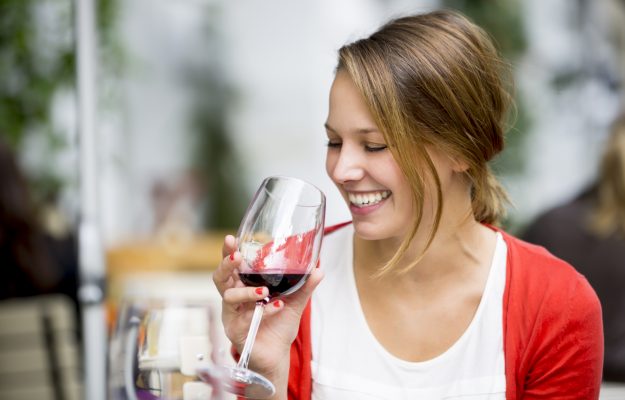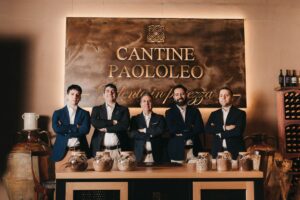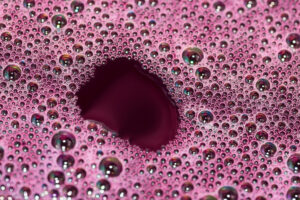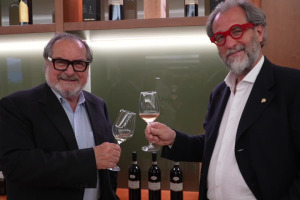The debate over “alcohol and health”, about which WineNews has written extensively in recent days, continues to dominate the Italian media, becoming not only economic and scientific but also political. One of the major issues on which each party brings scientific evidence to support is the harmfulness of alcohol; for some, it is obvious regardless of the quantity and type of drink consumed, while for others, it is harmful to health only beyond certain amounts and under certain conditions. And in this regard, it is interesting to see the words of Corrado Galli, president of the Società Italiana di Tossicologia, “a scientific association that represents active members in the University, in industry, in institutions and companies and in health/hospital structures”, as reported the website www.sitox.it, who claims: “all substances are toxic, only the dose makes them non-toxic. It is good to distinguish the concept of danger from that of risk. Indeed, the danger is an intrinsic characteristic of a substance (it can cause harm to the fetus), whereas risk is an estimate of the harm deriving from exposure to the substance. To estimate the risk, the identification of the effect (damage to the fetus) is not enough, but the definition of the dose with which the effect does not occur and how this compares with the exposure of the individual or of the population is needed: if we are below the dose of no effect, the exposure is to be considered safe; it is a dose that makes the substance “non-toxic”. Also, alcohol, like all substances, can cause toxic effects - argues Galli - but there are doses (quantities) below which these consequences do not appear. There are other examples of substances or agents that are classified as carcinogens - cured meat or red meat - or that are known endocrine disruptors, such as soy. Yet we quietly continue to consume them without any labeling and clamor. Therefore - concludes Professor Corrado Galli - the concept of risk from which the definition of dose, use or exposure to be considered safe derives should always be clarified. This reference to the safe dose applies to all substances, including those with which we are familiar and which, if overused, can be harmful to our health. Alcohol is no exception”.
Words that, in some ways, echo those of Dr. Franco Berrino, who, among other things, directed the Department of Preventive and Predictive Medicine at the National Cancer Institute of Milan for many years and published several books and articles on nutrition and health. Berrino, in an interview with the newspaper “Corriere della Sera”, while confirming the link between alcohol and the risk of developing cancer, said: “based on my experience and my studies, I am convinced that if you drink a little bit, the risk is much less than that of exposure to other factors, such as pollution, smoke, pesticides. But let’s get back to what science says: meanwhile, in the international guidelines, we don’t talk about wine, we talk generically about alcohol. And on what the scientific community agrees that the relationship between alcoholic beverages and cancer is very clear. Today the European Code against Cancer declares: “If you drink alcohol of any kind, limit your consumption. To prevent cancer, it is best to avoid drinking alcohol. In short, zero is the safest dose. To define the consumption limits, look at the national guidelines: the Ministry of Health and many other recommendations developed over the years define the consumption of 1 unit of alcohol per day for women as low risk, and 2 units of alcohol per day for men. Where, by alcoholic unit we mean 10 grams of alcohol, which are those contained in a glass of wine, a can of beer, or a shot of spirits. In order not to risk with respect to the onset of tumors, these doses are very close to the safe one, even if even greater caution is recommended for women”. And this, explains Berrino, is due to a hormonal issue linked to breast cancer. And, Berrino explains again, “alcohol is alcohol: with respect to major pathologies such as tumors, that is the problematic component referred to in the guidelines. However, there are some distinctions to be made: in the case of wine, the polyphenols it contains, particularly red wine, are an added value, a positive component. So much so that various studies show that moderate wine drinkers suffer from the cardiovascular disease a little less than non-drinkers, and the risk of cancer is very low. Other spirits, on the other hand, such as bitters, for example, are mostly full of sugar: this is absolutely not good”. And again, to the Corriere della Sera the journalist Alessandra Dal Monte, who asked Professor Berrino if one glass per week for women and a maximum of two a day for men are acceptable in order not to compromise health, Berrino replies: “yes. With 1-2 servings a day (respectively for women and men, with the distinction we made with respect to breast cancer) of alcohol, studies do not record an increase in the onset of cancers of the mouth, larynx, pharynx, to esophagus. The causal relationship is evident when these doses are exceeded. With 1 liter of wine per day (100 grams of alcohol, ed), for example, the risk of developing these types of cancer increases threefold (300%, ed). For liver and colon cancer, always with higher doses than recommended, the risk increases by 50%. To protect yourself from this type of tumor when drinking alcohol, it is best to have high doses of folic acid in the body: alcohol interferes with some DNA mechanisms that folic acid favors. Better to stock up on legumes and leafy greens”. And after explaining that, for example, smoking is much more harmful, but so is sugar compared to alcohol in the recommended doses not to be exceeded, Professor Berrino, who recounts drinking “every week or two, one or two glasses of good organic wine without added sulfites. Sulfites inflame the intestines and cause headaches”, to orient yourself in this forest of opinions, recommendations, and so on, he advises to “use common sense and stick to the recommended doses. Alcohol is definitely bad for the brain, but it all depends on the dose. Epidemiological studies find no damage, indeed they suggest protection, with the small doses”.
And, in the meantime, the comment of Nino Cartabellotta, president of the Gimbe Foundation has also arrived (which, as stated purpose, has that “of promoting the dissemination and application of the best scientific evidence with independent research, training, and scientific information activities, in order to improve people’s health and to contribute to the sustainability of a public, equitable and universal health service”), who, via Twitter, wrote, tagging the wine: “wanting to convey the message that everything is bad for health is a boomerang. People will believe that nothing hurts”.
Opinions that are added to those already expressed, therefore, lean towards common sense and the right rule, but which obviously will not close a delicate and important game, because we are talking about public health, but also about culture, identity, and the economy. In any case, we are moving forward on the political front, fighting for the defense of wine, in the spotlight in Italy as in no other country, it seems, at least for now, and which seems to unite forces of the majority and the opposition, as shown by the initiatives, among others, of the Fratelli d’Italia, the strongest party in the Government, the Democratic Party and the main opposition party in Parliament. In particular, Fratelli d’Italia presented a “resolution committing the government to all aspects of taking initiatives to counter the introduction in wine labeling of indications of health risk associated with alcohol consumption, but even if to appeal to the European Union Court of Justice”, with a provision presented in these hours in the Agriculture Commission of the Chamber of Deputies, with the first signatory to the Fdi deputy Maria Cristina Caretta. There are three key points in the resolution, as stated in the text, to prevent the introduction of legislation in Ireland (which, like every EU country, has autonomy in terms of public health, ed): “strive in all competent Europeans, evaluating, if necessary, the existence of the prerequisites for promoting an appeal to the Court of Justice of the European Union, also in coordination with other European countries that share the same Italian positioning; operate in all the international tables of competence, with reference to the World Trade Organization (WTO); adopt initiatives, also in coordination with other European countries, producers and exporters of wine at the competent European offices, to prevent Irish legislation from becoming a precedent to the detriment of national wine productions, going beyond the perimeter drawn by the Parliament among others European Union in the vote cast on the resolution”. And the movement of the Democratic Party goes in the same direction, first signed by Debora Serracchiani and signed by the deputies Andrea Gnassi (Productive Activities) and Stefano Vaccari (Agriculture Commission Leader), according to which “the Italian Government must take action, in all sites, European and international, in order to avoid both the authorization by the World Trade Organization and the adoption of similar initiatives by other member countries, to the initiative of Ireland which wants to introduce the information about the danger of alcohol use, also in wine labels. We have the objective - declared the exponents of the Democratic Party - to safeguard Italian productions and ensure the correct functioning of the internal market, preventing or removing any barriers”. And again, among other things, the movement of the Democratic Party underlines how “the regulation that Ireland wants to introduce does not differentiate the use of alcohol from the abuse, between harmful and moderate consumption of alcoholic beverages and, therefore, does not appear capable to bring measurable and effective benefits in the fight against irresponsible consumption. The new regulation sought by Ireland creates a significant schism within the European single market, legitimizing different labeling on products across member countries, jeopardizing legislative harmonization, and jeopardizing internal market free movement”. Serracchiani, Gnassi, and Vaccari - reads a note - also point out to the government that “the European Parliament in 2022 expressed itself, with a very large majority vote, against the aforementioned indications on the labels. Ireland’s decision will have negative consequences for Italian exports, with the risk that the damage will become much more substantial if other countries decide to follow this example”. Finally, the movement of the Democratic Party, explains a note, commits the Government “to favor coordinated action at the European level, based on constructive dialogue between the member countries and with the European institutions, in order to promote policies aimed at encouraging conscious and responsible consumption of alcohol, accompanied by more targeted actions against excessive and dangerous alcohol, with a view to proportionality and reasonableness of the regulation”.
Initiatives, opinions and judgments, between science and politics, which are added to those of recent days, between the positions of doctors “for and against” the glass, but also of the Ministers of Agriculture, Lollobrigida, who announced joint initiatives between Italy, France and Spain (the main wine producers in Europe and in the world) against the Irish “health warnings”, and by the Minister of Foreign Affairs Tajani, who has opened a discussion table with the Irish Government, as reported here (initiative commented with satisfaction from the president of Assoenologi, Riccardo Cotarella, see focus) and of doctors, scientists and researchers who obviously support their opposition to alcohol abuse, but also the benefits of moderate consumption of wine, as they said and reiterated, also in these videos on WineNews, as Giorgio Calabrese, dietician and president of the National Food Safety Committee of the Ministry of Health, Vincenzo Montemurro, cardiologist and member of the Board member of the Italian Society of Cardiology, Michele Scognamiglio, specialist in Food Science, biochemistry and clinical pathology, Marco Deriu, professor of Bioengineering at the Turin Polytechnic, and the journalist and popularizer Rosanna Lambertucci, and again Pierre-Louis Teissedre, president of the OIV Health and Safety Commission, and Luc Djoussè, research director of the Harvard Medical School Department of Medicine, as well as the positions of the supply chain, with the president of Assoenologi Riccardo Cotarella, Vittorio Cino, director of Federvini, Nicola Tinelli, Coordinator of the Political Office Unione Italiana Vini (UIV).
Wine and health, the president of Assoenologi Riccardo Cotarella: “the Government’s intervention is an important first step in reopening dialogue with Ireland”
“The intervention of our Government, through Foreign Minister Antonio Tajani, on the Irish Executive - explains Assoenologi president Riccardo Cotarella - to begin a discussion in which to discuss labeling with “alerts” for human health to be affixed on spirits, as Ireland has asked to be able to apply to the European Union, makes us satisfied: the bilateral technical table with the Ministries of Agriculture and Health is undoubtedly an important first step. Assoenologi has hoped for and urged the reopening of the discussion from the beginning, believing that only through constructive dialogue can a reasonable and balanced solution be reached. The active involvement of our government, including Agriculture Minister Francesco Lollobrigida, is an important signal that gives us strength and support in this battle in defense of Italian wine”.
Copyright © 2000/2025
Contatti: info@winenews.it
Seguici anche su Twitter: @WineNewsIt
Seguici anche su Facebook: @winenewsit
Questo articolo è tratto dall'archivio di WineNews - Tutti i diritti riservati - Copyright © 2000/2025

























































































































































































